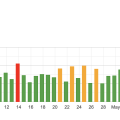Finding the right keywords for your website is crucial to driving organic traffic and improving your search engine rankings. You’ll learn how to identify the terms and phrases your target audience is using, and how to strategically incorporate them into your content. This guide will walk you through the process, from brainstorming initial keywords to utilizing powerful online tools for deeper insights. If you’re ready to enhance your website’s visibility and attract more visitors, this article is your go-to resource.
How Do I Find The Right Keywords For My Website?
How do I find the right keywords for my website?
If you’ve ever found yourself asking this, you’re not alone. Figuring out the right keywords can sometimes feel like searching for a needle in a haystack. But don’t worry! By the end of this article, you’ll have a much clearer idea of how to approach keyword research in a way that makes sense and is actually enjoyable. Let’s dive in!
Why Are Keywords Important?
Before diving into how to find the right keywords, let’s take a step back and discuss why they matter. Keywords are essentially the words and phrases that people type into search engines to find information. When used correctly, they help search engines understand what your website is about, making it easier for people to find you.
Enhancing SEO
Search Engine Optimization (SEO) is all about making sure your site is discoverable—and good keywords are the cornerstone of effective SEO. If your website includes well-researched and relevant keywords, you’re already a leg up in the SEO game.
Understanding User Intent
What are people really looking for when they land on your site? Keywords help you answer this question. Understanding user intent means you can tailor your content to meet their needs, making your site more useful and engaging.
Competitive Advantage
Lastly, having the right keywords can give you a leg up on your competitors. If you’re using the same keywords as them, but more effectively, you’re more likely to be found first.
Getting Started: Identify Seed Keywords
Every keyword strategy starts with seed keywords, the foundation upon which you build the rest of your keyword research.
What Are Seed Keywords?
Seed keywords are basic, generic terms related to your niche or industry. For instance, if you run a coffee blog, seed keywords might be “coffee,” “espresso,” or “coffee beans.”
Brainstorming Ideas
Think about the core topics of your website. Write down a list of terms that come to mind. These can be broad categories such as “fitness,” “cooking,” or “technology.”
Using Tools for Seed Keywords
Tools like Google’s Keyword Planner can be really helpful here. Input your broad terms to get more specific keyword ideas. You can also use free tools like Ubersuggest or AnswerThePublic to get initial keyword ideas.

Long-Tail Keywords
Once you’ve got your seed keywords, it’s time to get a bit more specific. This is where long-tail keywords come in.
What Are Long-Tail Keywords?
Long-tail keywords are longer and more specific phrases than your seed keywords. Instead of “coffee,” you might have “best coffee shops in New York” or “how to grind coffee beans at home.”
Table: Example of Seed Keywords and Long-Tail Keywords
| Seed Keyword | Long-Tail Keywords |
|---|---|
| Coffee | Best coffee shops in New York |
| Fitness | Beginner fitness routines at home |
| Cooking | Easy vegetarian recipes for beginners |
| Technology | Budget-friendly smartphones for students |
Why Long-Tail Keywords Matter
These keywords may have lower search volumes, but they usually have higher conversion rates. People searching for specific things are generally closer to making a decision, whether that’s purchasing a product or seeking detailed information.
Finding Long-Tail Keywords
You can use the same tools mentioned earlier to find long-tail keywords. Additionally, check out the “People also ask” and “Searches related to” sections at the bottom of Google search results.
Competitor Analysis
Understanding what your competitors are doing can provide valuable insights.
Identify Your Competitors
Start by identifying who your direct competitors are. These are the websites that are ranking for the keywords you’re interested in.
Use Tools for Analysis
There are several tools that can help you analyze competitors’ keywords. SEMrush, Ahrefs, and Moz are some of the most popular. These tools will show you the keywords your competitors are ranking for and can give you an idea of the search volume and competition level for those keywords.
Learn and Adapt
By understanding which keywords are working for your competitors, you can incorporate those into your own strategy, but with a unique angle. Don’t just copy—adapt and improve!

Analyzing Keyword Metrics
Not all keywords are created equal. You’ll need to evaluate them to see which ones are worth targeting.
Search Volume
Search volume indicates the number of times a keyword is searched for in a given period. High search volume means the keyword is popular, but it also usually means higher competition. Tools like Google Keyword Planner or Ahrefs can offer these metrics.
Keyword Difficulty
Keyword difficulty tells you how hard it will be to rank for a particular keyword. Generally, the higher the difficulty, the more established the competition. Most SEO tools will provide a keyword difficulty score.
Cost-Per-Click (CPC)
If you’re planning to run paid ads, understanding the Cost-Per-Click (CPC) of a keyword is crucial. This metric shows how much advertisers are willing to pay for a click on their ads for that keyword. High CPC usually indicates a high commercial intent behind those searches.
Click-Through Rate (CTR)
Click-through rate tells you how many people who see your page actually click on it. Keywords with a higher CTR can be more valuable because they suggest that searchers are more interested in the content that is ranking for that term.
Table: Example of Keyword Metrics
| Keyword | Search Volume | Keyword Difficulty | CPC | CTR |
|---|---|---|---|---|
| Best coffee shops NY | 10,000 | Medium | $1.50 | 4% |
| Beginner fitness routines | 5,000 | Low | $0.80 | 6% |
| Easy vegetarian recipes | 7,500 | High | $1.20 | 5% |
| Budget smartphones | 3,500 | Medium | $2.00 | 3.5% |
Refining Your List
Now that you’ve gathered a pool of potential keywords, it’s time to refine the list.
Group Similar Keywords
You might notice that some keywords are essentially variations of the same idea. Group these together so you can focus on the most valuable keywords for that topic.
Prioritize
Not all keywords are worth your time. Focus on those that balance search volume, keyword difficulty, and relevance to your audience. These priorities will form the backbone of your SEO strategy.
Avoid Keyword Cannibalization
Keyword cannibalization occurs when multiple pages on your site are trying to rank for the same keyword. This can confuse search engines and harm your ranking. Make sure you assign unique keywords to individual pages to avoid this issue.

On-Page SEO
Once you’ve finalized your keyword list, the next step is optimizing your content.
Use Keywords Naturally
Gone are the days of keyword stuffing. Use your keywords naturally within your content. Make sure they fit seamlessly into sentences and don’t disrupt the flow of your writing.
Keyword Placement
Strategic placement of keywords can make a big difference. Here are some key areas to include them:
- Title tags: The title appears in search results and should be compelling.
- Meta descriptions: These provide a brief summary of your page.
- Headings: Include keywords in H1, H2, and even H3 headings if relevant.
- Content: Ensure the body content includes your keywords.
- Alt text for images: This helps with image SEO.
Internal Linking
Linking to other pages on your site using relevant anchor text (which includes your keywords) can improve your site’s structure and SEO.
Monitoring and Adjusting
SEO is not a one-time effort but an ongoing process.
Use Analytics
Tools like Google Analytics and Google Search Console are incredibly valuable for tracking your progress. Keep an eye on metrics like page views, bounce rate, and user engagement.
Monitor Rankings
Regularly check where your pages are ranking for their targeted keywords. SEO tools like Ahrefs and SEMrush can help with this.
Adjust and Improve
Based on the data, make adjustments to your strategy. If certain keywords aren’t performing as well as you’d hoped, consider tweaking your content or targeting different keywords.
Keeping Up with Trends
SEO is ever-changing, and so are the keywords people use.
Stay Updated
Keep an eye on industry news and Google’s updates. Algorithm changes can impact your ranking, and staying informed will help you adapt quickly.
Use Trend Tools
Google Trends and other similar tools can show you what’s currently popular. Jumping on trending keywords can give you a short-term boost in visibility.
User Feedback
Your audience is a goldmine of information.
Ask Your Audience
Don’t be afraid to ask for feedback. What information are they looking for? What keywords do they use when searching for related topics? Surveys and social media can be good avenues for this.
Analyze Queries
Look at the search queries people use to find your site. Google Search Console can provide this information, showing you what terms are leading to clicks.
Niche-Specific Tips
Different industries have different needs when it comes to keywords.
E-commerce Sites
For e-commerce, keywords are often product-focused. Think about including brand names, product models, and buying intent phrases like “buy,” “review,” or “discount.”
Blogs and Content Sites
These sites often benefit from informational keywords. Think questions like “how to” or “best ways to.”
Local Businesses
If you run a local business, include location-specific keywords. Not just the city but neighborhoods and even landmarks can be valuable.
B2B Companies
Focus on industry-specific terms. Potential clients might use jargon that is specific to your field, so make sure you’re including those terms.
Advanced Techniques
Once you’ve got the basics down, you might want to dive into more advanced strategies.
Latent Semantic Indexing (LSI) Keywords
LSI keywords are terms that are semantically related to your main keyword. They help search engines understand the context of your content. For instance, related terms for “coffee” could be “brew,” “caffeine,” or “espresso.”
Voice Search Optimization
With the rise of voice-assisted devices, optimizing for voice search is becoming important. Voice queries are often longer and more conversational, so consider how people talk when they’re asking questions aloud.
Content Clusters
Create content clusters by developing multiple pieces of content around a central topic, linked back to a pillar page. This strategy helps in boosting your SEO for particular themes and improves site structure.
Common Mistakes to Avoid
It’s easy to make mistakes in keyword research. Here are some to watch out for:
Ignoring User Intent
Make sure your keywords align with what users are actually looking for. Don’t just aim for high traffic if it’s not relevant to your content.
Overlooking Mobile Search
Mobile search behavior can be different from desktop. Make sure you’re considering both when selecting keywords.
Focusing Only on High-Volume Keywords
While it’s tempting to go after those high-volume keywords, don’t ignore those long-tail keywords that can be easier to rank for and highly targeted.
Neglecting to Update Your Strategy
SEO is not set-and-forget. Keep revisiting and refining your strategy based on performance data and changes in your industry.
Final Thoughts
Finding the right keywords for your website might seem daunting, but it doesn’t have to be. Start with a solid foundation of seed keywords, branch out into long-tail keywords, and continuously monitor and adapt your strategy. Utilize tools at your disposal for competitor analysis and keyword metrics. Always think about the user intent and avoid common pitfalls. With patience and persistence, you’ll master the art of keyword research and drive more targeted traffic to your site.
Remember, SEO is a marathon, not a sprint. Keep refining your skills and stay updated with industry trends to maintain and enhance your site’s visibility over time. Happy keyword hunting!











